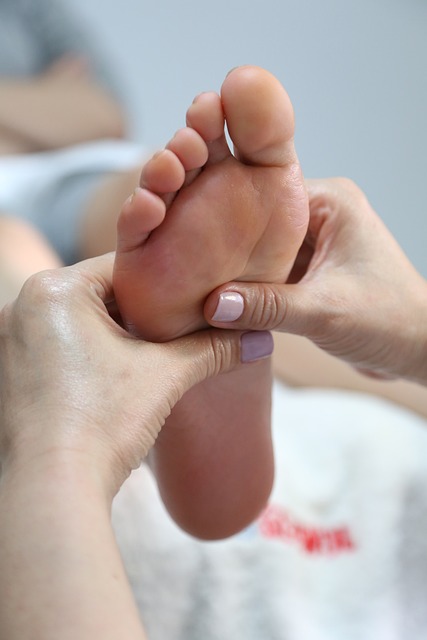Save Money on Companion Care: Top In-Home Aide in McAllen, TX
Looking to save on healthcare costs without compromising care for your loved ones in McAllen, Texas?…….
Welcome to an in-depth exploration of the vital service known as In-Home Aide McAllen, Texas. This article aims to dissect and demystify this essential support system, shedding light on its various aspects, impact, and potential. McAllen, a vibrant city in South Texas, has embraced the concept of in-home aide services as a cornerstone of its community care network. By understanding this initiative, we can appreciate its global relevance, economic implications, and technological advancements that shape the future of home-based assistance.
What is In-Home Aide?
In-home aide services, at their core, refer to a network of trained professionals who provide direct care and assistance to individuals within the comfort of their homes. This care can span various domains, including personal hygiene, meal preparation, medication management, transportation, and companionship.
McAllen’s Approach:
In McAllen, Texas, the in-home aide program is designed to support seniors, individuals with disabilities, and those recovering from illness or injury who require assistance to maintain their independence and quality of life. The service is personalized, ensuring that each client receives tailored care suited to their unique needs and preferences.
Historical Context:
The concept of in-home care has evolved over time, gaining prominence as a preferred alternative to institutionalization. In the early 20th century, with the rise of industrialization and urban living, there was a shift from community-based care to more centralized healthcare models. However, the late 20th century saw a resurgence in demand for home-based services, driven by an aging population, advancements in medical technology, and a growing recognition of individuals’ rights to independent living.
McAllen’s in-home aide program has its roots in this historical context, responding to the changing needs of the community and ensuring that vulnerable residents receive the support they require to thrive in their homes.
The concept of in-home care has transcended national boundaries, captivating societies worldwide. According to a 2022 report by the World Health Organization (WHO), the global home healthcare market is projected to reach USD 473.5 billion by 2026, showcasing a compound annual growth rate (CAGR) of 11.6% from 2021 to 2026. This exponential growth can be attributed to several factors:
Aging Population: The global aging population is a primary driver. With life expectancy increasing, the number of individuals aged 65 and over is rising sharply, leading to a greater demand for in-home care services.
Urbanization: Urban areas, with their dense populations, are experiencing a surge in demand for home-based services due to higher living costs and limited access to institutional care.
Pandemic Impact: The COVID-19 pandemic has accelerated the adoption of in-home care. Public health guidelines have encouraged individuals to isolate at home, further emphasizing the need for personalized care services.
Regional Trends:
North America: The United States and Canada are leading markets for home healthcare services, driven by an aging population and advanced medical technology.
Europe: Countries like Germany, France, and the UK have robust in-home care systems, with a strong focus on integrating these services into national healthcare frameworks.
Asia Pacific: Rapid urbanization in countries like Japan, South Korea, and China is driving the growth of home healthcare, addressing the needs of an aging population in densely populated areas.
The in-home aide industry has a significant economic footprint, influencing both local and national economies.
Market Dynamics:
| Factor | Impact |
|---|---|
| Demographics | An aging population drives the demand for in-home care services, creating opportunities for service providers. |
| Healthcare Costs | In-home aid can be a cost-effective alternative to institutional care, potentially reducing overall healthcare expenditure. |
| Labor Market | The industry requires a skilled workforce, contributing to employment and economic activity. |
Economic Impact:
Job Creation: According to the US Bureau of Labor Statistics, home healthcare aid is projected to grow by 34% from 2020 to 2030, significantly outpacing the average for all occupations.
Revenue Generation: The in-home care market globally is expected to generate substantial revenue, with the US market alone accounting for over $150 billion in 2021.
Community Development: Local in-home aide services can foster community engagement and independence, reducing the economic burden on families and public healthcare systems.
Technology plays a pivotal role in transforming in-home care into a more efficient, accessible, and personalized service.
Innovations:
Telehealth: Remote monitoring and telehealth services enable caregivers to provide assistance from a distance, using video conferencing, wearable devices, and mobile apps for medication reminders and health tracking.
Smart Home Technology: Smart home devices, such as automated lighting, temperature controls, and security systems, enhance safety and convenience for clients and caregivers.
AI-Assisted Care: Artificial intelligence (AI) is being utilized to predict care needs, optimize staffing schedules, and provide personalized recommendations based on client data.
Benefits:
Improved Access: Technology expands access to in-home care services, particularly in rural or underserved areas.
Personalized Care: AI and data analytics enable more tailored care plans, improving client satisfaction and outcomes.
Efficiency Gains: Automation and digital tools streamline administrative tasks, allowing caregivers to focus more on direct client care.
McAllen’s in-home aide program serves as an excellent example of a successful community-based initiative.
Implementation:
Training and Certification: All in-home aides in McAllen are required to undergo comprehensive training, covering medical assistance, patient handling, nutrition, and emotional support. They must also obtain certifications in CPR and first aid.
Personalized Care Plans: Each client’s care plan is unique, taking into account their physical abilities, mental health, cultural preferences, and daily routines.
Technology Integration: The program utilizes a digital platform to manage staff schedules, client records, and service billing, ensuring efficient operations.
Impact:
Improved Quality of Life: Clients report increased independence and improved overall well-being due to the personalized care they receive.
Reduced Hospital Readmissions: By providing timely and consistent care at home, the program has contributed to a decrease in hospital readmissions for its clients.
Community Engagement: The initiative has fostered a sense of community among participants, who often form social connections with their aides, leading to improved mental health outcomes.
Despite its numerous benefits, the in-home care industry faces several challenges:
Workforce Shortages: There is a constant need for trained caregivers, and addressing labor shortages is crucial for sustaining service quality.
Regulatory Compliance: Ensuring that in-home care services meet legal standards and regulations is essential to maintaining client safety and privacy.
Access to Technology: While technology enhances care, digital divides must be addressed to ensure all clients can benefit from these advancements.
Looking ahead, the future of in-home aide services lies in:
Data-Driven Care: Utilizing big data analytics to predict care needs and optimize resource allocation.
Integration with Telehealth: Expanding remote care capabilities to provide continuous support, even when clients are away from home.
Cultural Competence Training: Ensuring that caregivers are trained in cultural sensitivity to cater to a diverse client population.
In-home aide services, as exemplified by McAllen’s program, represent a profound act of community support and care. By embracing this initiative, cities like McAllen are not only enhancing the quality of life for their residents but also fostering independence, dignity, and social cohesion. As technology continues to evolve and societal needs change, in-home care will remain an indispensable component of modern healthcare, ensuring that vulnerable individuals receive personalized assistance within the comfort and security of their homes.

Looking to save on healthcare costs without compromising care for your loved ones in McAllen, Texas?…….

Looking to maintain your independence and save on costs in McAllen, Texas? Our free in-home aide ser…….

Tired of juggling endless responsibilities? Let New! Affordable Home Care Solutions in McAllen, Texa…….

Looking for affordable senior care in McAllen, Texas? Discover the financial savings and peace of mi…….

Experience unparalleled peace of mind and emotional well-being with our In-Home Aide services in vib…….

Experience unparalleled convenience and cost savings with our top-tier in-home aide services right h…….